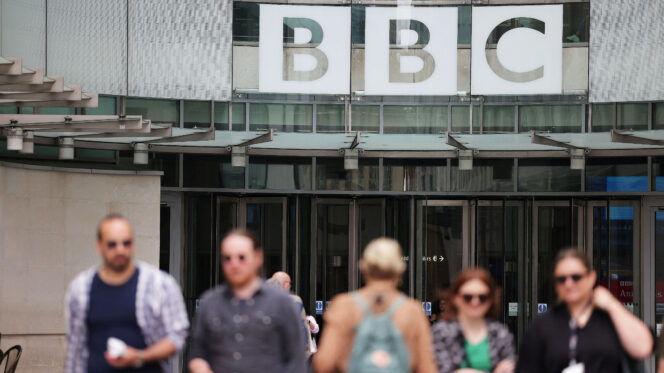British Comment Journalism is in the Gutter – Signed, a Comment Journalist
Opinion is king - and mostly utter crap.
by Moya Lothian-McLean
7 September 2023

Since I was 19, I’ve been in the business of professional opinion-giving. This isn’t a fact that engenders much pride; the humble op-ed (‘opposite the editorial’, if you want to be formal) is one of the lowest common denominators in journalism. Yet it still had further to fall, when over the weekend, rightwing political commentator Dominique Samuels revealed that staff at the Daily Mail had been ghostwriting at least some of the columns she ‘produces’ for the title.
This sordid little practice was exposed by Samuels herself in the wake of the traditional, racialised media furore that always follows London’s annual Caribbean celebration, Notting Hill carnival. Despite Samuels having made her name as a Black person willing to bat for socially conservative views that position marginalised demographics as ideological threats to Great Britain (think frequent invocations of the ‘trans lobby’ and ‘critical race theory’), she wasn’t having this one. Outrage about the “violence” of carnival was “manufactured”, she said. How did Samuels finally work it out, one wondered?
Well, because last year, the Mail had approached her to be the face of a “ghost-written, negative, verging on racist piece” about carnival. “Eventually,” Samuels said, she turned down the offer as it was “a complete misrepresentation of what I witnessed whilst I was there”. She then actually wrote her own column – by herself! – on the event, she claimed – only for it to be so heavily edited that she pulled the piece altogether.
The outrage fest about Notting Hill Carnival is tiresome and to be honest manufactured.
I was asked to be the face of a ghost-written, negative, verging on racist piece by the Daily Mail paper last year and eventually turned it down because it was a complete misrepresentation…
— Dominique Samuels (@Dominiquetaegon) September 2, 2023
Naturally, this opened up questions about other columns ‘penned’ by Samuels for various Mail titles. When asked, she admitted that at least one other piece bearing her name – an article dismissing Meghan Markle’s claims of rubbing up against racist attitudes within the British monarchy – owed nothing to her beyond the byline attached to it. More concerning still, Samuels insisted at first that it was “pretty much standard” for British newspapers to ghostwrite copy for their guest columnists.
It isn’t – or at least, it’s not established as a standard, open practice for any of the broadsheet titles I’ve worked for. Testimony from Mirror journalists Lorraine King and Rachel Charlton-Dailey also countered Samuels’ assertion from the tabloid side. Alongside the Mail, Samuels has ‘written’ multiple columns for the Daily Express, and boasts ‘co-author’ bylines for the Sun. It doesn’t take a genius to draw a conclusion about where and how Samuels collected enough evidence to declare it “standard” for contentious articles to be written in-house, then matched with a face who might be seen to better weather pushback against such opinions.
In a country with more robust mechanisms of holding its media to account, Samuels’ admission would be the beginning of a scandal. Sure, she may have signed off on having such content published under her name. But why is the name ‘Dominique Samuels’ so valuable to the likes of the Mail? What does the identity of this 24-year-old copywriter, unknown to the majority of the country, offer the Mail that they can’t get elsewhere?
Thanks to the reductive nature of our public discourse, it seems obvious that attaching racist opinions like ‘Notting Hill carnival is a uniquely violent event’ to a young, Black face offers a form of protection. It’s not racist because a Black person is saying it – a youthful, in touch one. It’s their lived experience, and individual lived experience is king so yah boo sucks, everything collective is dead and only the self can survive. Also racism doesn’t really exist systemically, that’s critical race theory, which is a fairytale favoured by the ‘woke left’ in order to keep Black people in a perpetual state of victimhood. Which also isn’t racism, that’s something else. Anyway – trans people! And so on.
Contrary to popular myth, there never was a ‘golden age’ of British press – but the quality of our media has certainly undergone a notable decline in the past half century. The advent of digital media was supposed to remove barriers to entry. In a lopsided way, it did – but without an accompanying, and much needed, injection of cash. Instead, the pluralism of the media landscape shrunk (the last major new UK daily national newspaper to be launched was the Independent in 1986; initially created as an independent challenger in the news market, it was sold to the billionaire Alexander Lebedev in 2010 and now only survives in digital form).
What was left was a smaller circle of newsrooms, with scant resources, blank website space to fill and access to a whole host of untapped ‘voices’ via the rise of blogging. Rather than pluck these people for in-house training, they were instead drafted in as freelancers to expand on topics they might have previously written about on their own platforms. This may have started as a vaguely interesting exercise back in the 2010s. But by 2023, it mostly consists of editors searching X (formerly Twitter) for who has publicly commented on some made-up trend like ‘quiet quitting’ and commissioning 800 words (remuneration: £90) from a 22-year-old City University graduate desperate to snag a full-time role in a newsroom at any cost. Age is a crucial factor here; there’s a reason so much comment is literally coming from the mouths of babes.
Entry routes into journalism are in a dire state. Even those blessed with all the advantages that increase the likelihood of ‘making it’ – private schooling and its accompanying social network, a Russell Group education, a familial financial cushion to support entry level media salaries – will speak of the struggle just to get their foot in the door. But if you don’t possess these privileges, comment can be your best shot at getting your first byline – especially if you’ve not been spat out by an extortionate journalism grad scheme (which at least furnishes you with some basic training and confidence, if nothing else). For comment writing, you don’t need the knowledge of how to craft a right of reply or send an FOI. All one requires is an opinion, and the ability to express it in half-good English.
Of those who take this route, some may become very good at it, especially if they are paired with an editor who takes them under their wing. A rare few may develop their skills beyond monetising their own thoughts, whether through mentorship or dogged self-teaching. But many others will find themselves confined to serving as freelance dreck correspondents. Unsurprisingly, this burden falls disproportionately on those who don’t have the room to hustle at these crucial early career stages, to move to London for the promise of scoring a few minimum wage news desk shifts, or mire themselves in debt for the sake of a journalism masters that doesn’t guarantee a job upon graduation. That is to say, it’s the poor, disabled and ethnic minorities who are more likely to find themselves limited to comment. We’re often opinions for hire rather than talent to invest in.
I say this with no malice – I’ve spent a considerable part of my career as one of these writers. It’s the result of an industry where low cost, low effort and low-quality comment writing has become not just acceptable, but dominant. Time and budget stretched editors, on an all-encompassing quest to hit ‘traffic’ targets, will almost always opt for reactive opinion pieces. You may even be thinking: ‘I’m reading one right now’. Indeed, in the age of individualism, opinion and personal experience is king, and it’s feelings over facts. Unfortunately, this just contributes to a climate where trust in British media is at an all-time low.
There is a way to counter such a culture: pay for media, invest in platforms doing things differently, so they in turn can divest from churnalism. But the public are reluctant to choose this option; 65% say “nothing” could make them pay for their online news. Instead, they’ll remain gorging on comment, the junk food of journalism, consumed at high speed and leaving the reader curiously unsatiated – even angry – thanks to bland, repetitive and barely-researched arguments. It was hard to imagine the medium could have been further discredited, but hats off to the Mail – it always manages to raise the bar.
This piece was amended on 7 September to reflect the original etymology of ‘opposite editorial’.
Moya Lothian-McLean is a contributing editor at Novara Media.


